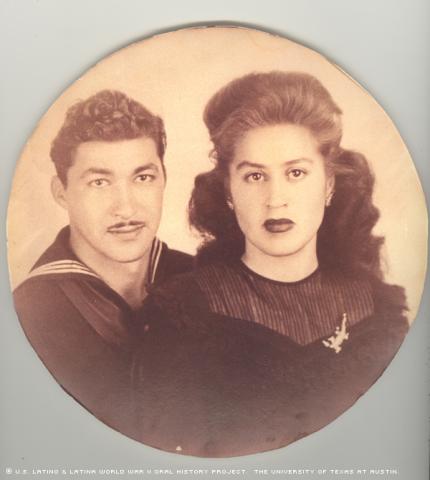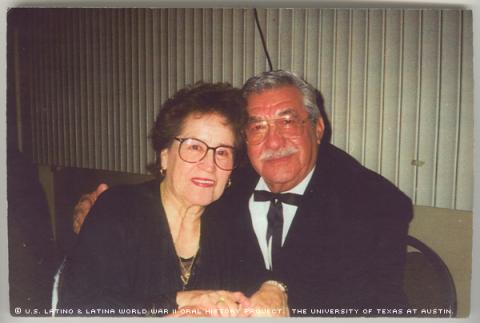

By Tim Garlitz
To see the world, not to mention to avoid getting drafted into the Army, Felix Soto Jr. quickly signed up for the Coast Guard upon graduating from high school in June of 1942.
Three out of Soto’s four brothers soon followed his lead by enlisting in the Navy. (His youngest brother, Mario, was ineligible for service because of his young age.)
“We wanted to choose the service that we wanted,” said Soto, who was essentially in the Navy, since it incorporated the Coast Guard during World War II. “When you’re drafted, you’re automatically drafted into the Army.”
Soto was born to a Methodist preacher in Austin, Texas. His mother and father had both emigrated from Mexico at a young age and had decided to settle in and raise a family in Central Texas. The family’s devout religious background dated back to Soto’s grandfather, Basilio Rodriguez Soto, who worked as a circuit-riding Methodist preacher in Central Texas in the mid-1880s.
Although his father was raised predominantly in Texas, both Soto’s mother and father were born in Mexico. Soto’s father, Felix Enriques Soto, hailed from Monterrey, while his mother, Concepción Reyes, was from the city of Parral, in the Mexican state of Chihuahua.
Soto’s mother had lived through the Mexican Revolution, so she was initially concerned about her son’s involvement in an armed conflict.
“She had seen what war does. … My mother knew Pancho Villa,” said Soto, explaining that his mother and her family went to El Paso to escape Villa, who wanted her family to join his revolt.
After signing up for the war effort, the Coast Guard sent Soto to the Algiers section of New Orleans, La., for training.
“After receiving my training there in Algiers, we were shipped to West Palm Beach, Fla., where we stayed there for a number of months and did several different assignments,” many of which entailed standing guard at different ports, Soto said.
After completing a stint at Lake Okeechobee, Soto then shipped off to Orange, Texas, where he would board the vessel that would eventually take him and the rest of his amphibious division to North Africa’s Rabat for his first overseas mission. While in North Africa, his unit took part in several raids, eventually participating in the landings at Sicily and southern Italy.
“We always were the first ones to go in into an invasion with the troops,” Soto said. … “We were very fortunate that my ship and my shipmates, we all came out OK.”
Although Soto says he never encountered racial discrimination while growing up in Texas, he recalls observing it to some degree while serving during the war. He remembered an African-American mess officer in his division who experienced “some resentment from the other shipmates, because they were from the South, from Georgia, Mississippi and Alabama.”
Despite the tension this generated on board the ship, Soto says he never felt the need to join the other sailors.
“My parents didn’t bring me up like that,” said Soto, who was the only Mexican American in his division. “[W]e all were children of God.”
Soto says he didn’t experience discrimination from the other sailors, but that he did endure prejudice from locals when his division would travel through the South. Upon stopping in Atlanta, Ga., for example, Soto recalls a waitress at a bar refusing to serve him. She used a law that prohibited Native Americans from being served as her excuse, Soto says.
His shipmates stood up for him, however, taking the waitress aside and saying,
“Don’t you get him roused up, because he’s an Apache,” recalled Soto, adding that the manager soon apologized, not realizing Soto was Mexican American instead of Native American.
After serving overseas, Soto was stationed in Houston for the remainder of the war. He was discharged Sept. 24, 1945, at the rank of Seaman First Class, and having earned the Good Conduct medal, among other honors.
Mr. Soto was interviewed in Manor, Texas, on March 12, 2005, by Cynthia Cueva.

